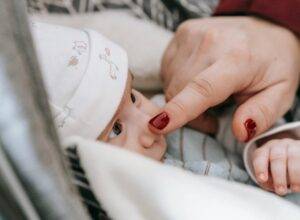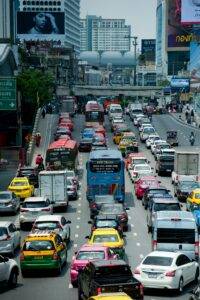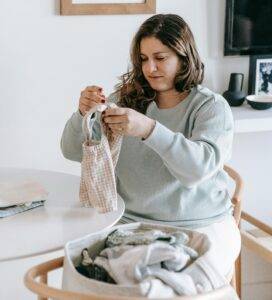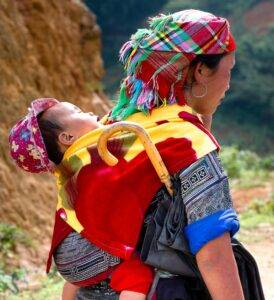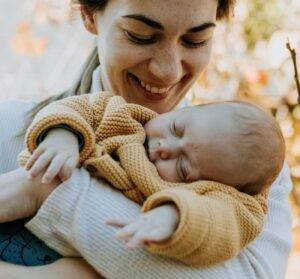As a new parent, welcoming your newborn into the world is a time of joy, but it can also be filled with questions and concerns. One of the first major decisions you’ll likely face is when a newborn baby go outside. You might hear opinions from friends, family, and even social media. So, what’s the real answer?
Is it safe for your newborn go outside, and if so, when and how should you do it? This guide will explore the key factors you consider before venturing outdoors with your baby. By the end, you’ll clearly understand how to safely and comfortably bring your little one outside, ensuring a smooth experience for you and your baby.
Is It Safe for a Newborn Baby Go Outside?
The short answer is yes; it is generally safe for newborn baby go outside in the first few days of life. The idea that babies stay indoors for weeks or months is an adage. Most pediatricians agree that fresh air and sunshine benefit the baby and the parents. That said, certain precautions are important before heading out the door.
While taking your newborn outside is safe under the right conditions, acknowledge that newborns have delicate immune systems. They’re more vulnerable to infections and temperature extremes, so deciding to go outside must be carefully timed and executed.
Newborn Baby Go Outside: What to Consider Before Going Outside
Every newborn is different, and every family’s situation is unique. Before you take your newborn outside, there are several factors you should carefully consider to ensure their safety and comfort.
1. Baby’s Health and Immune System
A major consideration is your baby’s overall health. If your baby was full-term and there were no significant health complications during birth, they are generally ready to be taken outside as soon as you’re comfortable. However, premature babies or those born with certain medical conditions might require more time before being allowed to go outdoors. Premature infants tend to have weaker immune systems, making them more susceptible to infections.
Before you plan that first outing, be sure to discuss it with your pediatrician, particularly if your newborn has been in the neonatal intensive care unit (NICU) or if they have any underlying health concerns. Babies with conditions like congenital heart disease or other respiratory issues may also need extra precautions.
2. The Right Weather Conditions
Your newborn’s ability to regulate body temperature is another essential factor. Babies can’t yet control their body heat like older children and adults; extreme weather conditions can be dangerous. Both heat and cold can affect a newborn more drastically, so you pay close attention to the weather forecast.
- Cold Weather: If it’s chilly outside, bundle your baby in layers to keep them warm. Always ensure that their head, hands, and feet are covered, as newborns can lose body heat quickly through these areas. However, don’t overbundle since multiple layers can cause overheating, especially if your baby is in a carrier or stroller that traps warmth.
- Hot Weather: On extreme heat days, protect your baby from direct sunlight, as newborns’ skin is sensitive to UV rays. Use light, breathable fabrics like cotton to avoid overheating, and ensure your baby stays hydrated, especially if breastfeeding. Watch for symptoms of heat exhaustion, such as redness, sweating, or fussiness.
When the weather is mild, it’s the perfect opportunity to take your newborn outside for a walk. Ideal temperatures for newborns are between 65°F and 75°F (18°C to 24°C).
3. Air Quality Concerns
Air quality is another factor to keep in mind. Stay indoors or limit outdoor exposure if you live in an urban area with pollution or high pollen counts. Newborns have developing respiratory systems, and exposure to poor air quality can lead to breathing difficulties or exacerbate any existing respiratory issues.
You can check your area’s Air Quality Index (AQI) using a smartphone app or visiting a local weather website. Postpone your outdoor plans if the AQI is above 100. Areas with heavy smoke, smog, or pollen can harm your newborn’s developing lungs.
4. Crowds and Germ Exposure
While outdoor walks in quiet areas are generally safe, you should be cautious about taking your newborn to crowded places. Large groups of people—such as in malls, supermarkets, or even family gatherings—can expose your baby to germs and viruses, especially in their first few months of life.
During the flu season, avoid crowded areas, as newborns can catch illnesses more easily. Germs can spread quickly in confined spaces, and a newborn’s immune system is not yet fully developed to handle them. If you must go to a public place, consider keeping your baby close in a baby carrier or a covered stroller to create a physical barrier between them and others.
5. The Pediatrician’s Advice
While most newborns can go outside within the first few weeks, get advice from your pediatrician. Your baby’s doctor can provide personalized recommendations based on your newborn’s health history, the time of year, and the overall environment. If health conditions affect your baby’s ability to handle being outside, your pediatrician can advise you on the best precautions.
Preparing for Your Newborn’s First Outing
When you feel that you and your newborn are ready for that first outdoor trip, it’s essential to be fully prepared. New parents often feel overwhelmed with packing and planning short outings, but a few basic tips will help ensure everything goes smoothly.
Pack the Essentials for Every Trip
When stepping outside with a newborn, being overprepared is always better than being underprepared. Here’s a basic list of essentials to pack before you head out:
- Diapers and wipes: You never know when your baby will need a diaper change, so always bring a few extra diapers with wipes and diaper cream.
- A change of clothes: Babies can be messy, and it’s helpful to have an extra outfit or two on hand in case of spills or diaper leaks.
- Blankets: Use lightweight blankets for sunny days and warmer, thicker blankets for cooler weather. Blankets can also act as a cover for breastfeeding or to provide shade in a stroller.
- Bottles and formula (if bottle-feeding): Always carry enough milk or formula to feed your baby when you’re out longer than expected. For breastfeeding moms, a cover-up might also be useful if you plan to nurse in public.
- Hand sanitizer: Babies love to explore their world with their hands and mouths, so keep our hands clean, especially if you’re changing diapers or handling feeding bottles.
Dress Your Baby for Comfort and Safety
Choosing the right outfit for your newborn is crucial for their comfort and safety outside. In cooler temperatures, dressing your baby in layers keeps them warm. Your baby should be dressed in one more layer than what you’re wearing to help regulate their body temperature. You can always remove layers if your baby gets too warm.
For warmer days, stick with lightweight fabrics and avoid tight or overly warm clothes that can lead to heat rash. Babies can readily overheat, so keep them cool and comfortable in hot weather. Hats are a must for sunny days, protecting from the sun’s harsh rays.
Use the Right Gear: Stroller vs. Baby Carrier
When taking your newborn outside, there are two popular options: strollers and baby carriers. Both have benefits, and the choice depends on what’s most comfortable for you and your baby.
- Strollers: These are a great option for longer walks, especially if carrying a diaper bag and other essentials. Strollers provide shade with a built-in sun canopy and offer a smooth ride for your baby. The stroller should have proper neck and head support for your newborn, as they won’t have the strength to hold their head up yet.
- Baby Carriers: If you prefer to keep your baby close, a baby carrier can be a comforting option. Carriers allow hands-free while maintaining skin-to-skin contact, which can help calm a fussy baby. Carriers also provide warmth and can be ideal in cooler temperatures. However, ensure your baby’s hips and legs are properly supported to avoid discomfort or potential hip issues.
Newborn Baby Go Outside: How Long Should You Stay Outside
When it comes to outdoor time, start small. Newborns are still adjusting to their environment, so keeping the first few outings short—between 15 and 30 minutes—is a good starting point. This makes them comfortable outside and note how they respond to being outdoors.
As you and your baby get used to being outside, you can gradually extend the duration of your outings. For longer trips, be prepared with snacks for yourself, plenty of diapers, and feeding supplies. Keep an eye on your baby’s behavior; fussy or uncomfortable, it may be time to head home.
Newborn Baby Go Outside: When Should You Avoid
While getting outdoors with your newborn is generally safe, there are certain times when it’s best to stay inside.
- Extreme weather conditions—scorching heat, cold, or heavy rain—are situations where you should avoid taking your newborn out. In extreme cold, hypothermia is a real risk for newborns. Signs that your baby may be too cold include pale or blue skin, shivering, and cold extremities. If you take your newborn outside in cold weather, limit the amount of time spent outdoors, and make sure they are bundled up appropriately.
On the other hand, overheating can be just as dangerous in hot weather. Keep your baby out of direct sunlight and always make sure they’re wearing light, breathable clothing. If your baby seems unusually flushed, sweaty, or uncomfortable in the heat, head indoors to cool down.
- Flu season. Limit your baby’s exposure to crowded places, staying away from large crowds is essential to minimizing the risk of infection.
Enjoy Outdoor Time Safely with Your Newborn
As a new parent, taking your baby outside for the first time is a milestone. And while it’s common to have concerns about your baby’s health and safety, being well-prepared makes that first trip a positive experience. You can safely take your newborn outside whenever you feel ready by considering factors such as your baby’s health, the weather, and potential exposure to germs. Outdoor time can be a wonderful opportunity for you and your baby to get fresh air, enjoy the environment, and bond in new ways.
For more helpful information on caring for your newborn, check out these resources:
- Get a Cool Mist Humidifier for Your Newborn: 8 Reasons Why It’s Essential for Your Newborn’s Health
- What Newborn Baby Needs: Enjoy the First Month With These 10 Must-Have Items
Enjoy these precious moments with your newborn, and remember that outdoor adventures can be safe and rewarding with a little preparation!

